Ch. 84 Notes
Here are some of my notes as Director of Municipal Cable Channel 84, one of the first community-run cable channels in the US.
Backstory
During my final year in college in Massachusetts, I began my first attempt at working in the local community using 2 newly emerging media: portable handheld video and cable television. This had opened up new communications channels that enabled ordinary people to be involved in making and sharing media on channels that allowed them to actually interact with each other - and with people in power.
In 1974 I produced my first video documentary, "The Poliitcs of Frustration", which chronicled Somerville's struggle to establish community sweat equity in their local cable television system, which had been acquired by large holding corporation.
Within a few months of its release the Mayor allocated federal CETA funding to establish a permanent community programming entity under local government auspices. The FCC required that cable systems must provide Public, Education and Government access to services. The Community Cable Advisory Board unanimously selected me to head up The Municipal Cable Project - one of the first community-run and operated cable TV stations in the United States.
The notes below are all handwritten becasue .... we didn't have computers available to us in 1975.
Individuals mastering these diverse disciplines are abundant, but not so those capable of inventiveness and less so those capable of subordinating that inventiveness to a rigorous and systematic plan.
Jorge Luis Borges
Channel opening : Early days
The Plan
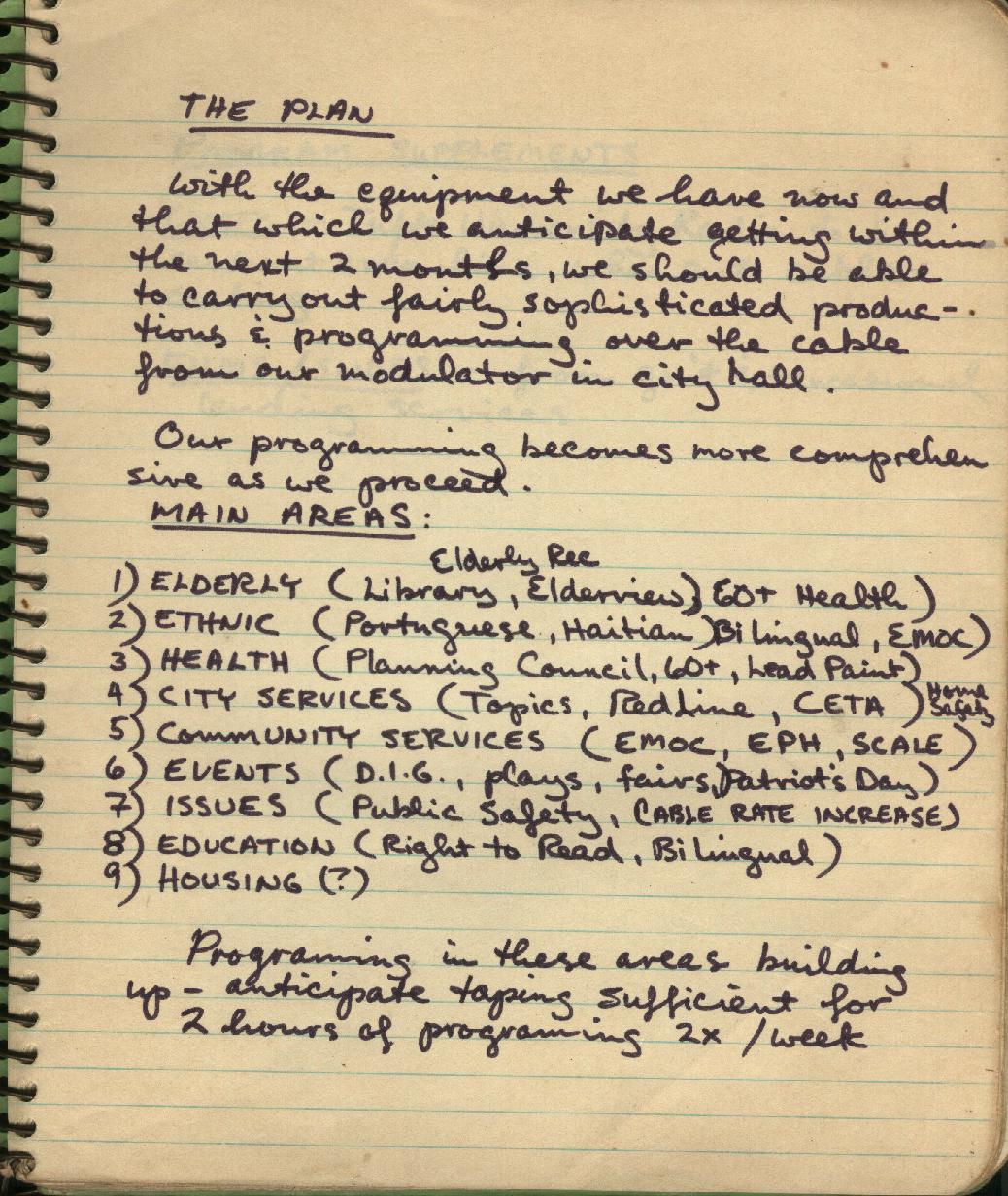
A Funky "Studio"
Part of our challege was to turn an unused storage area in City Hall into a live studio for transmitting Cable TV.
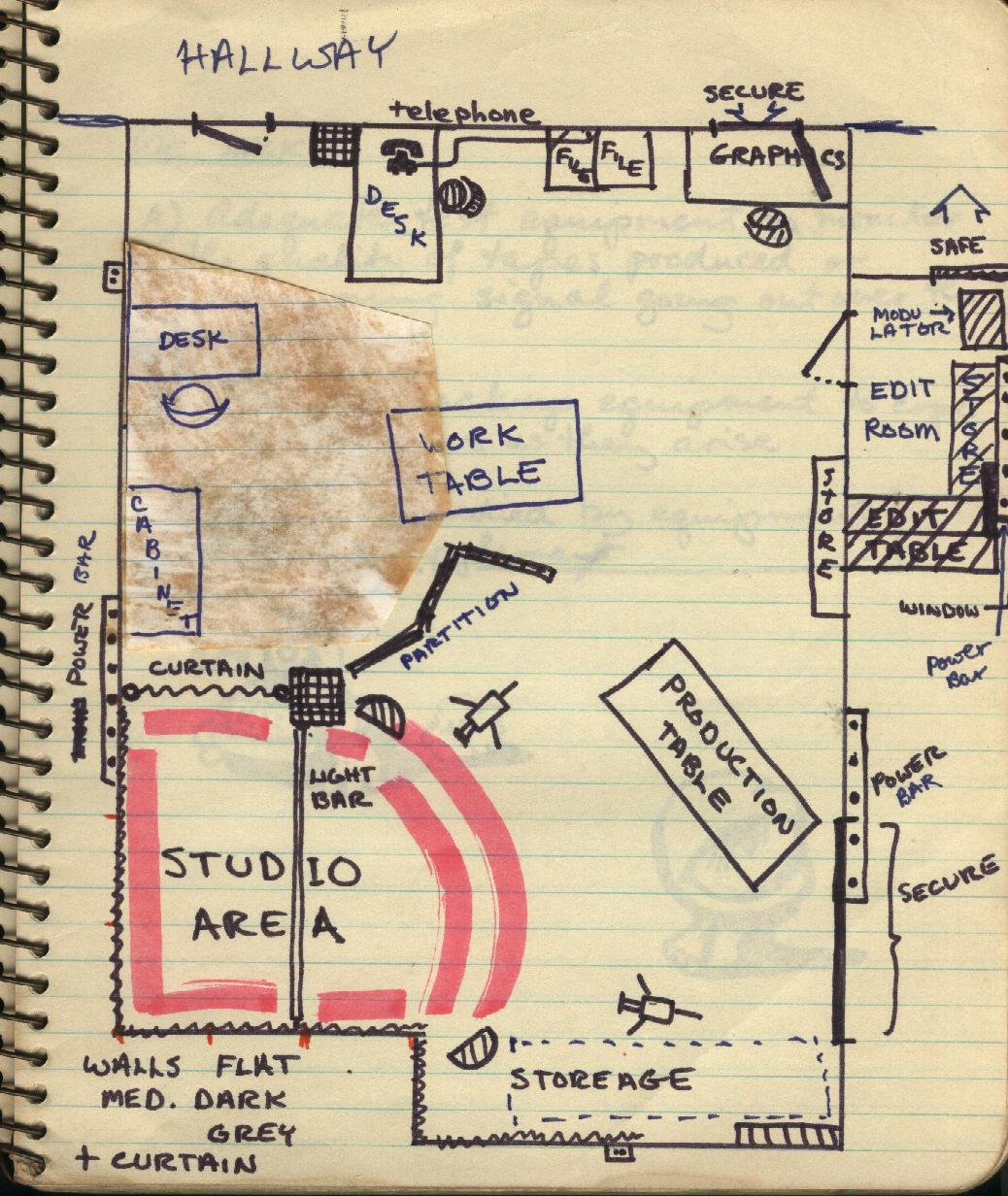
A Small Staff
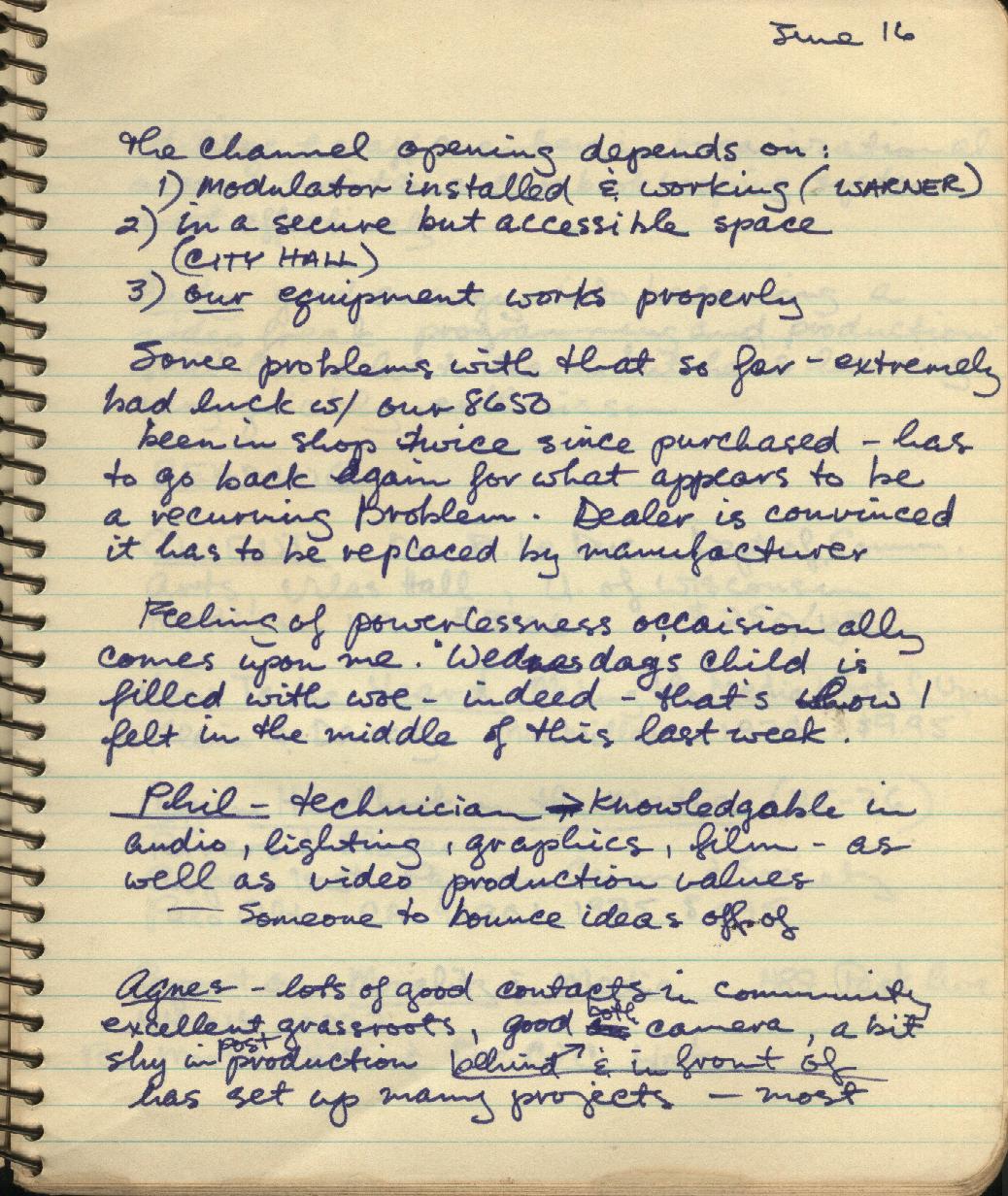
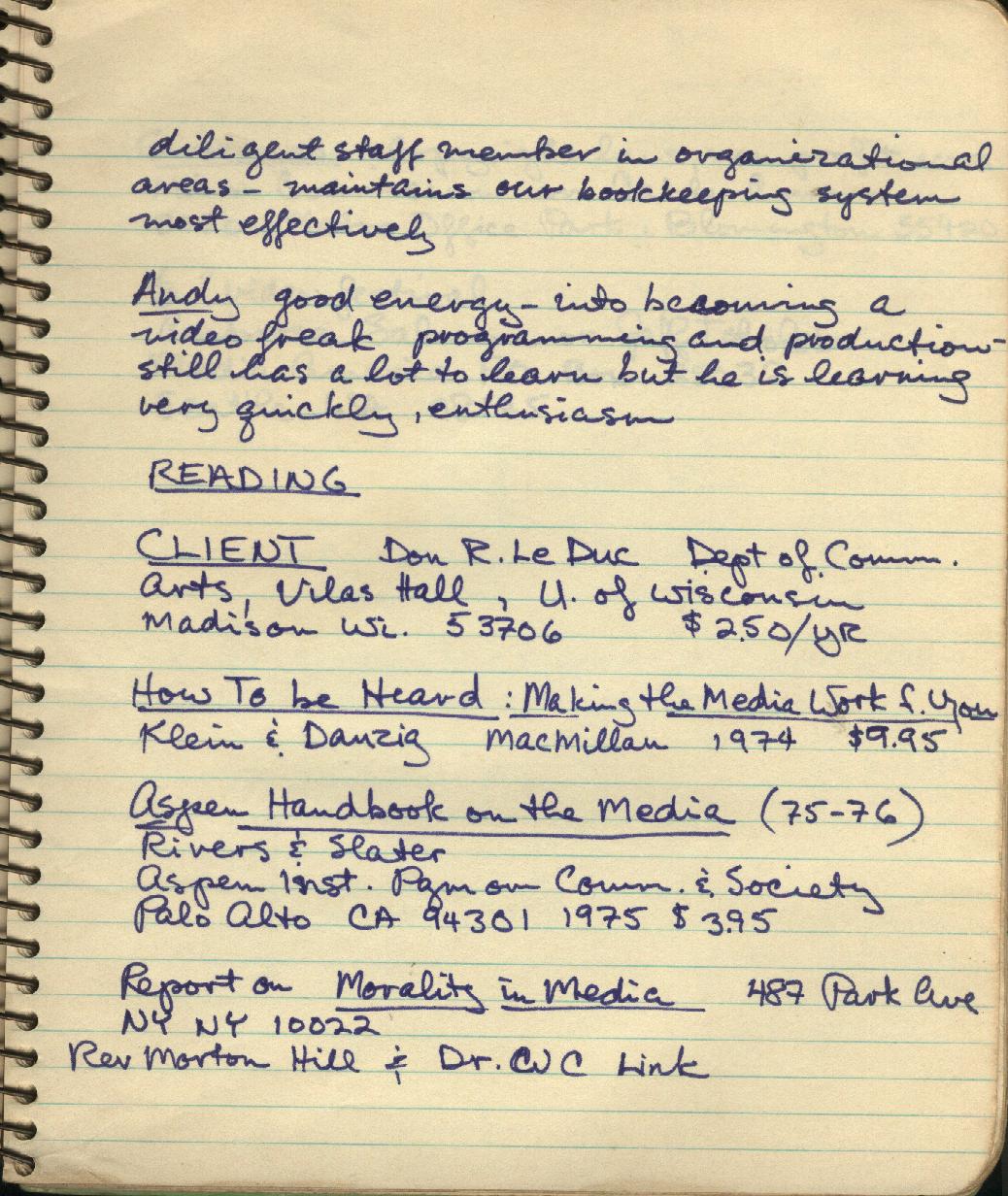
Our Roles
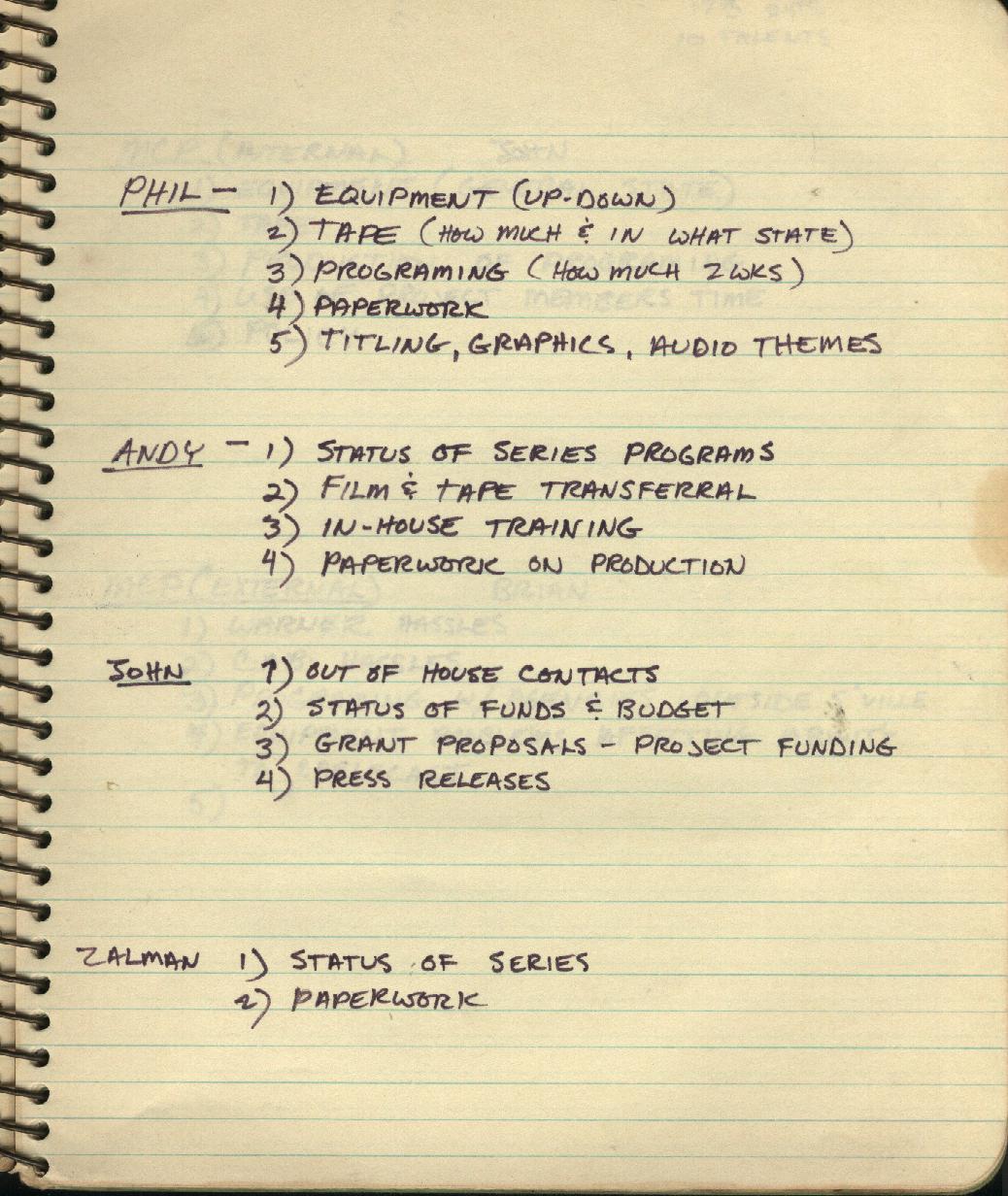
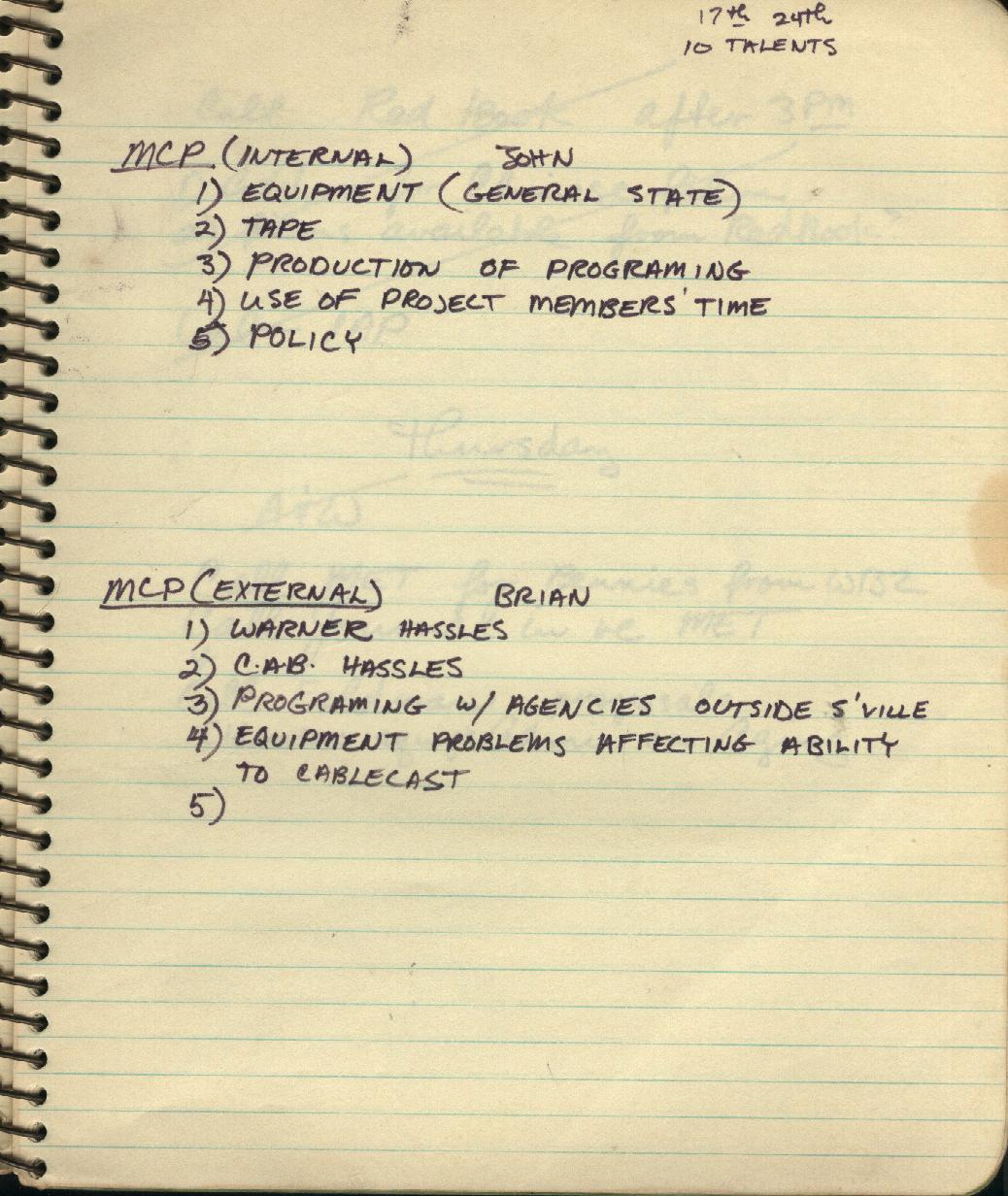
Logistics
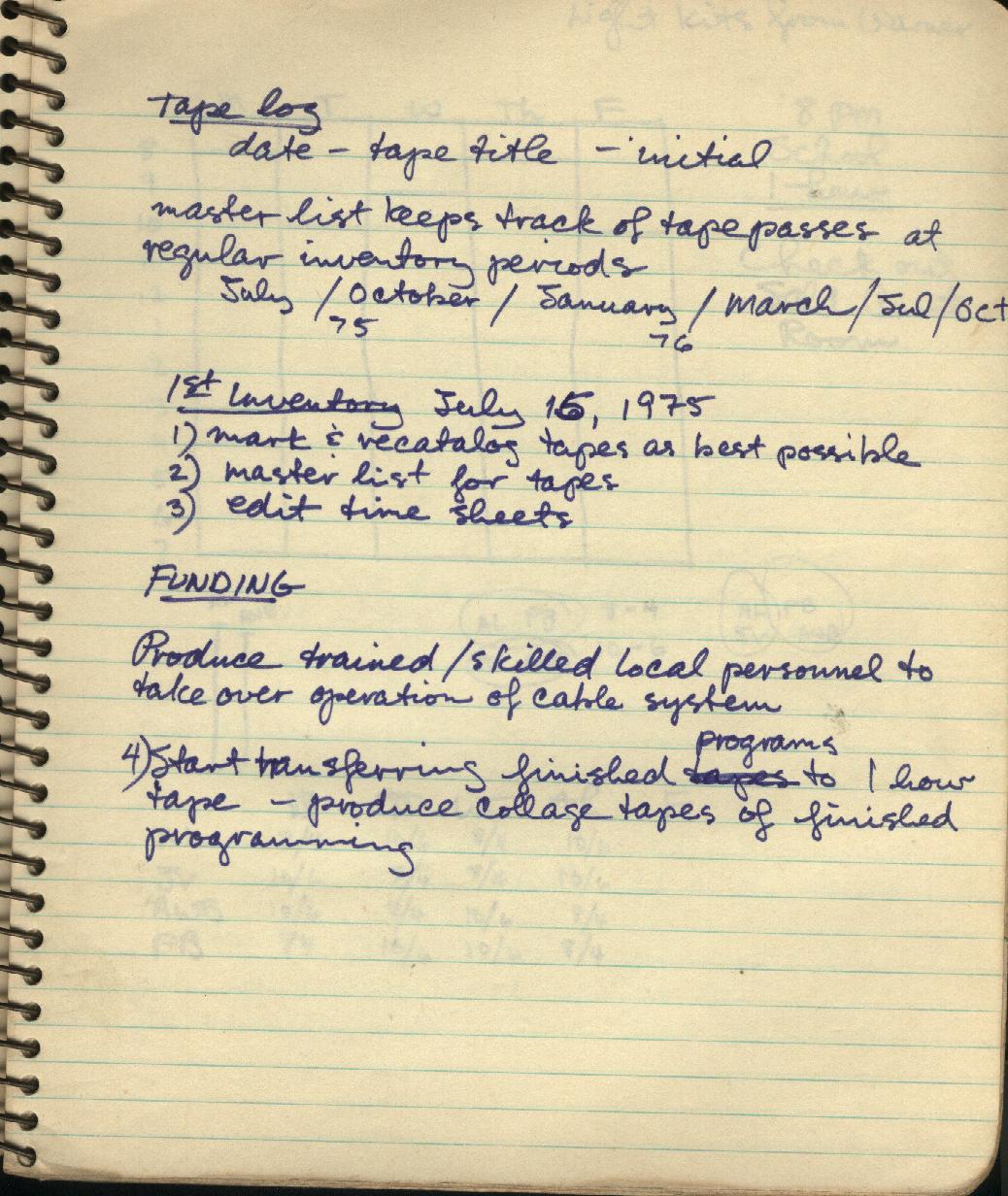
Signboard Sketches
Affordable electronic titling tools weren't available. So I hand-drew with magic markers, then set the card in front of a camera. *sigh* . It worked.
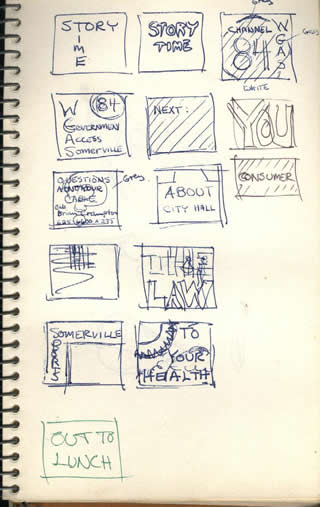
On-Air Channel schedule
High School Sports, Children, Arts
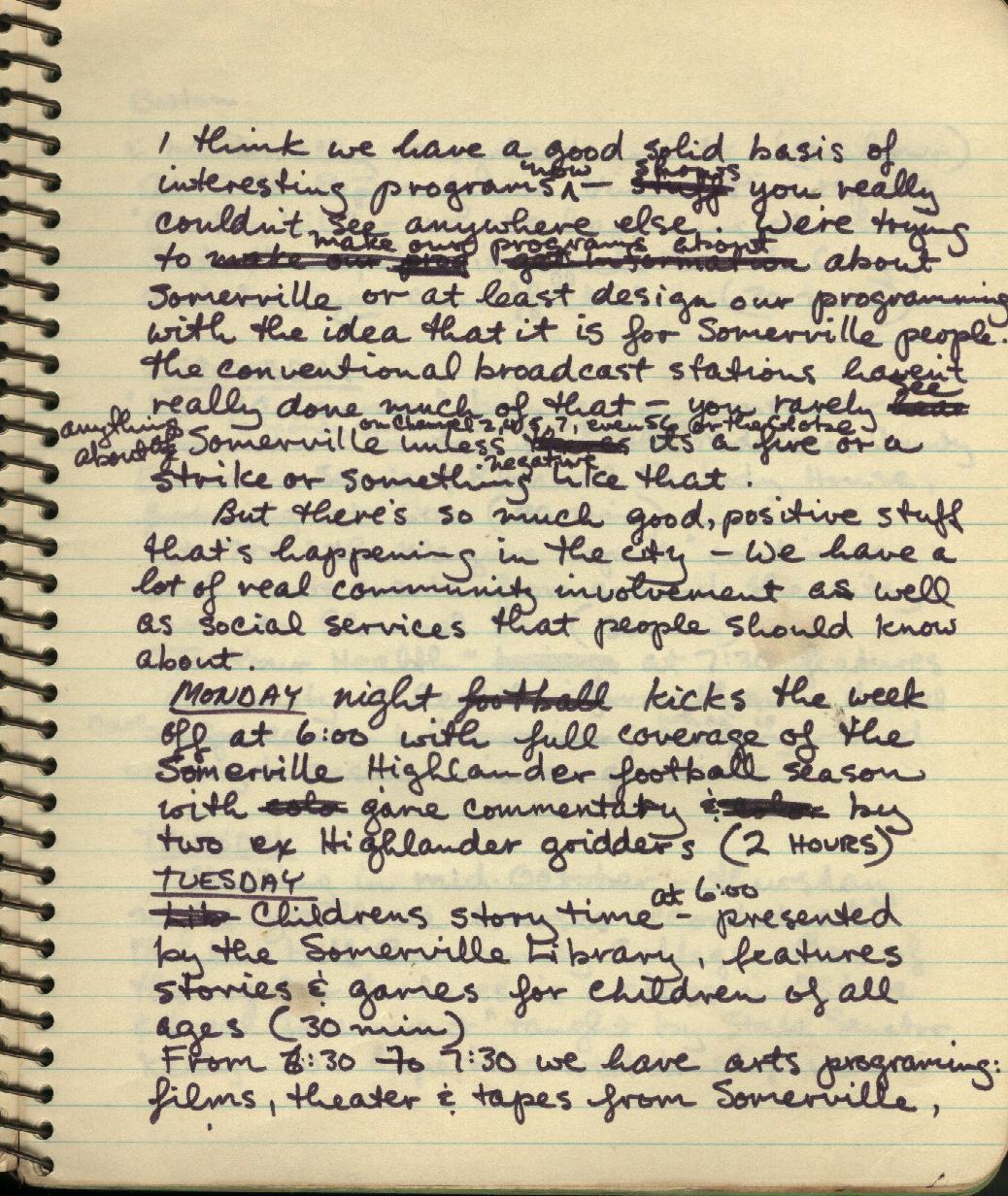
State, Consumer, Mayor, Health, Bunker Hill Community College
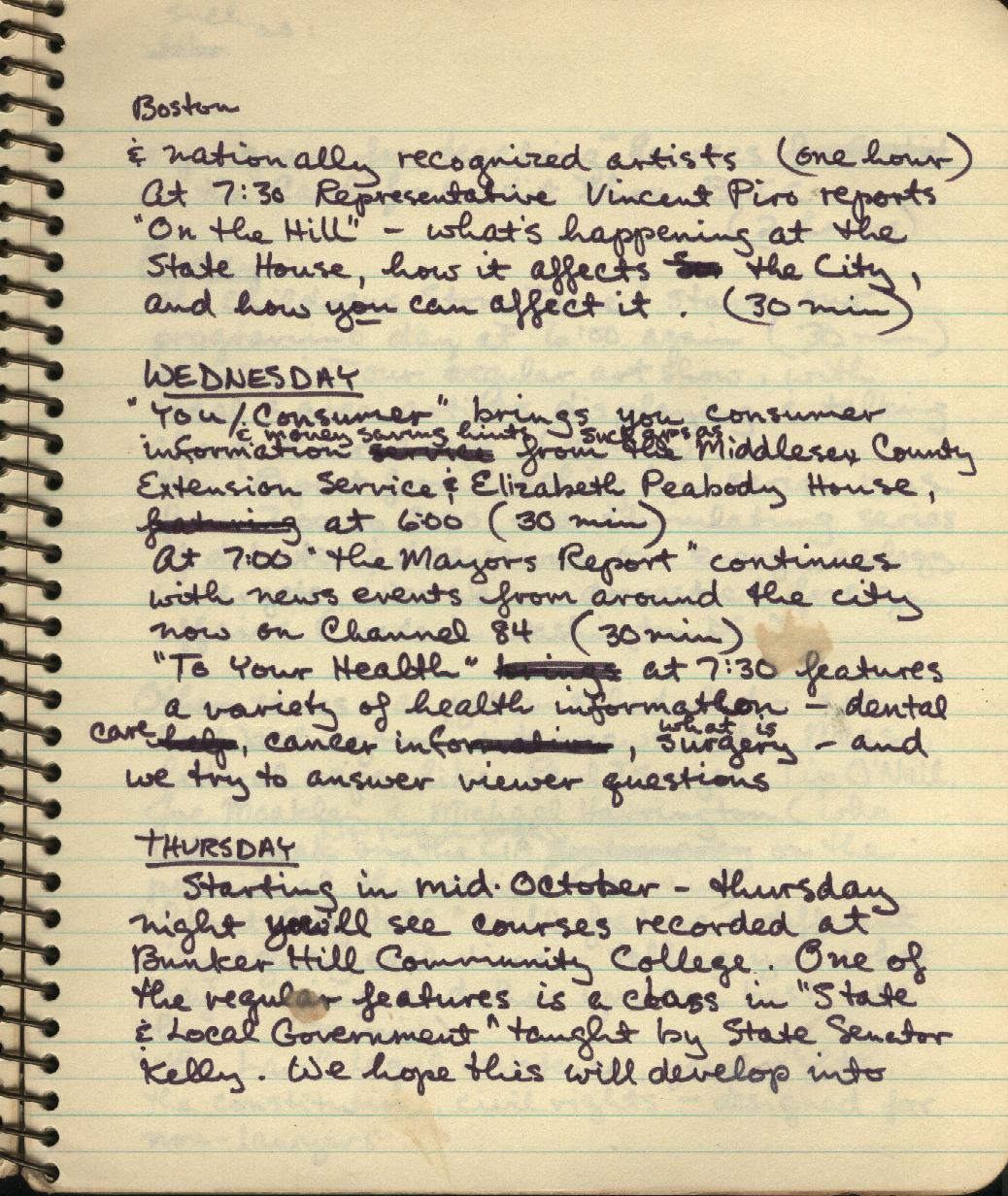
Children, Washington, City Hall, Law
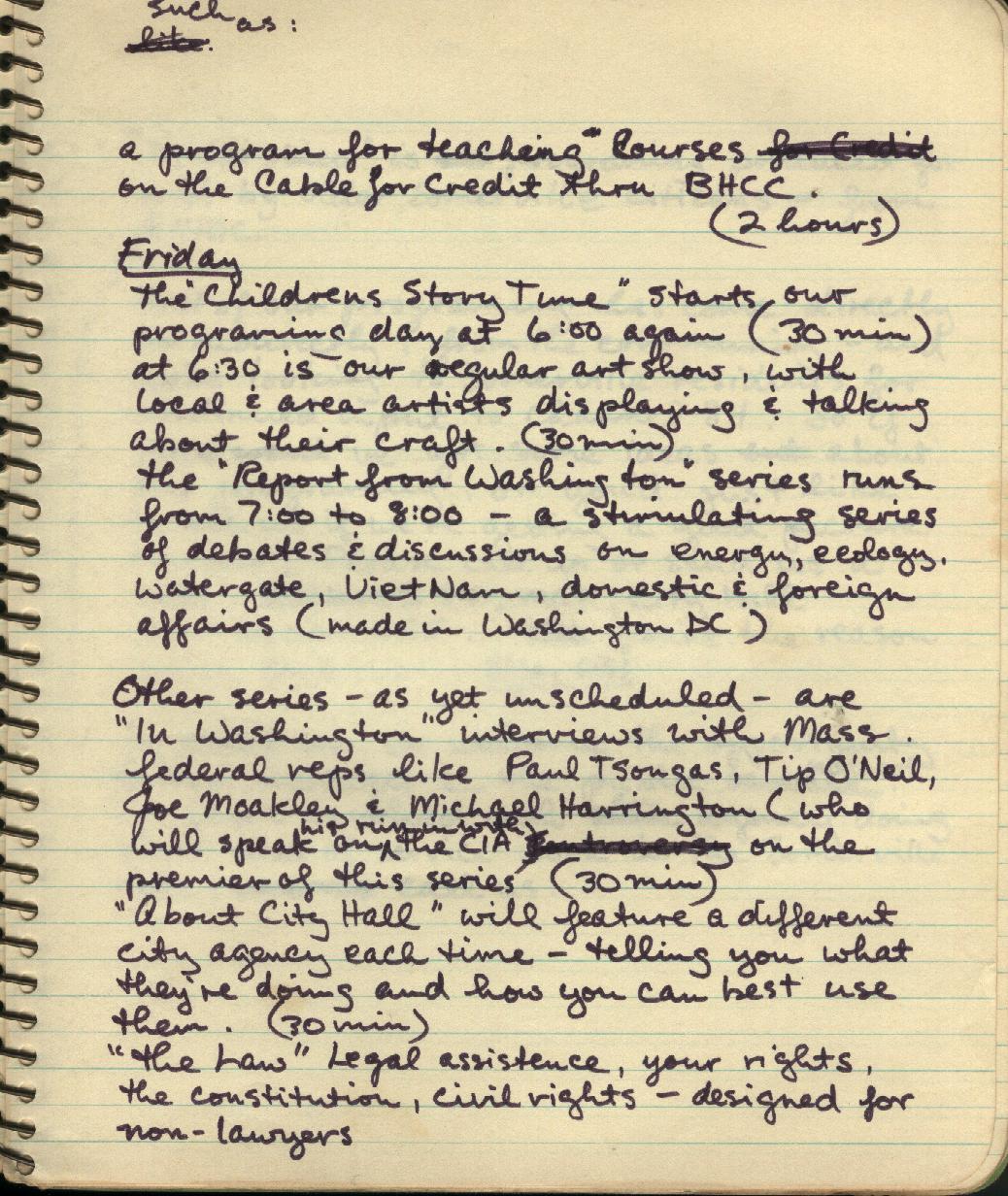
Seniors
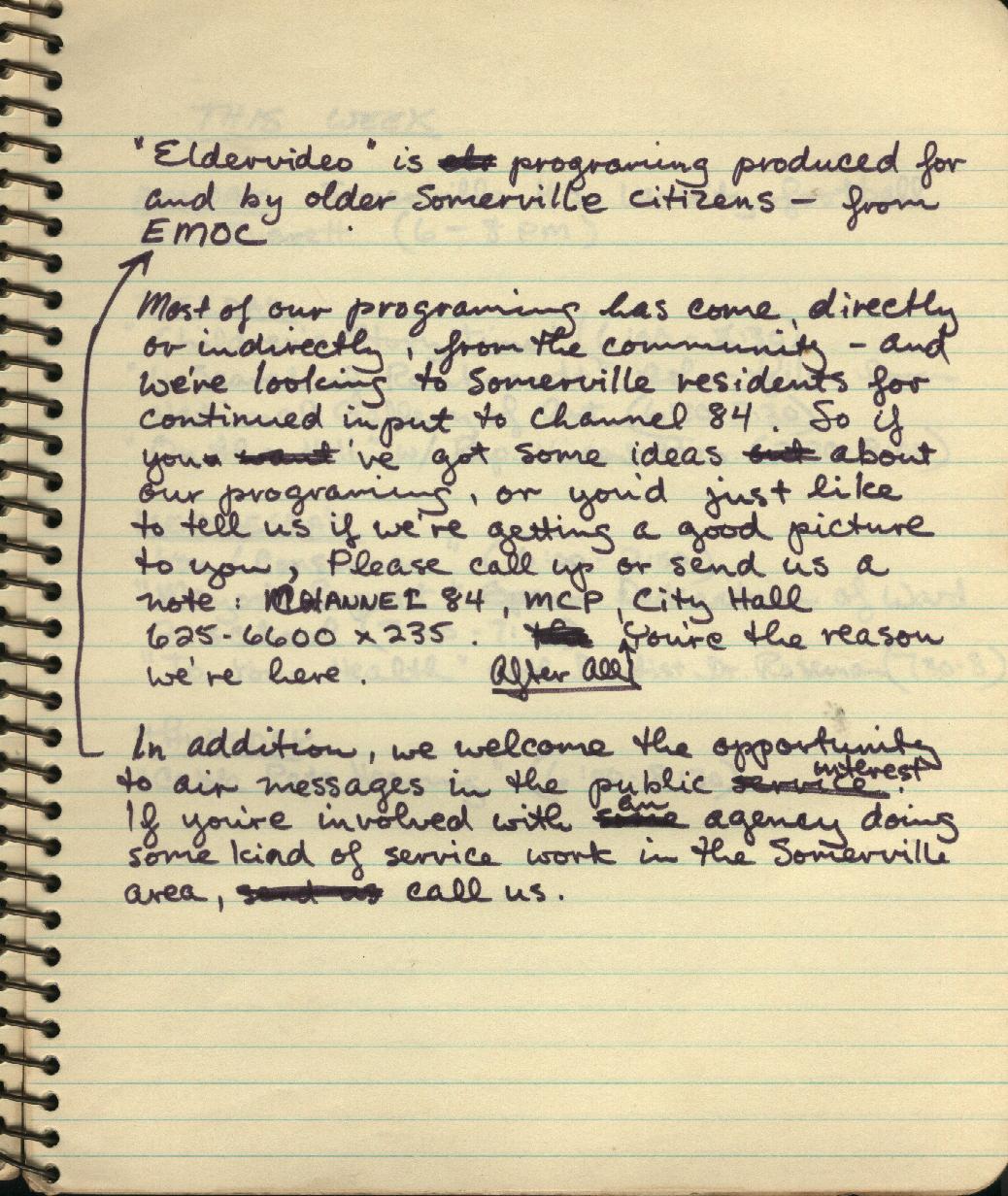
Sample Weekly Schedule
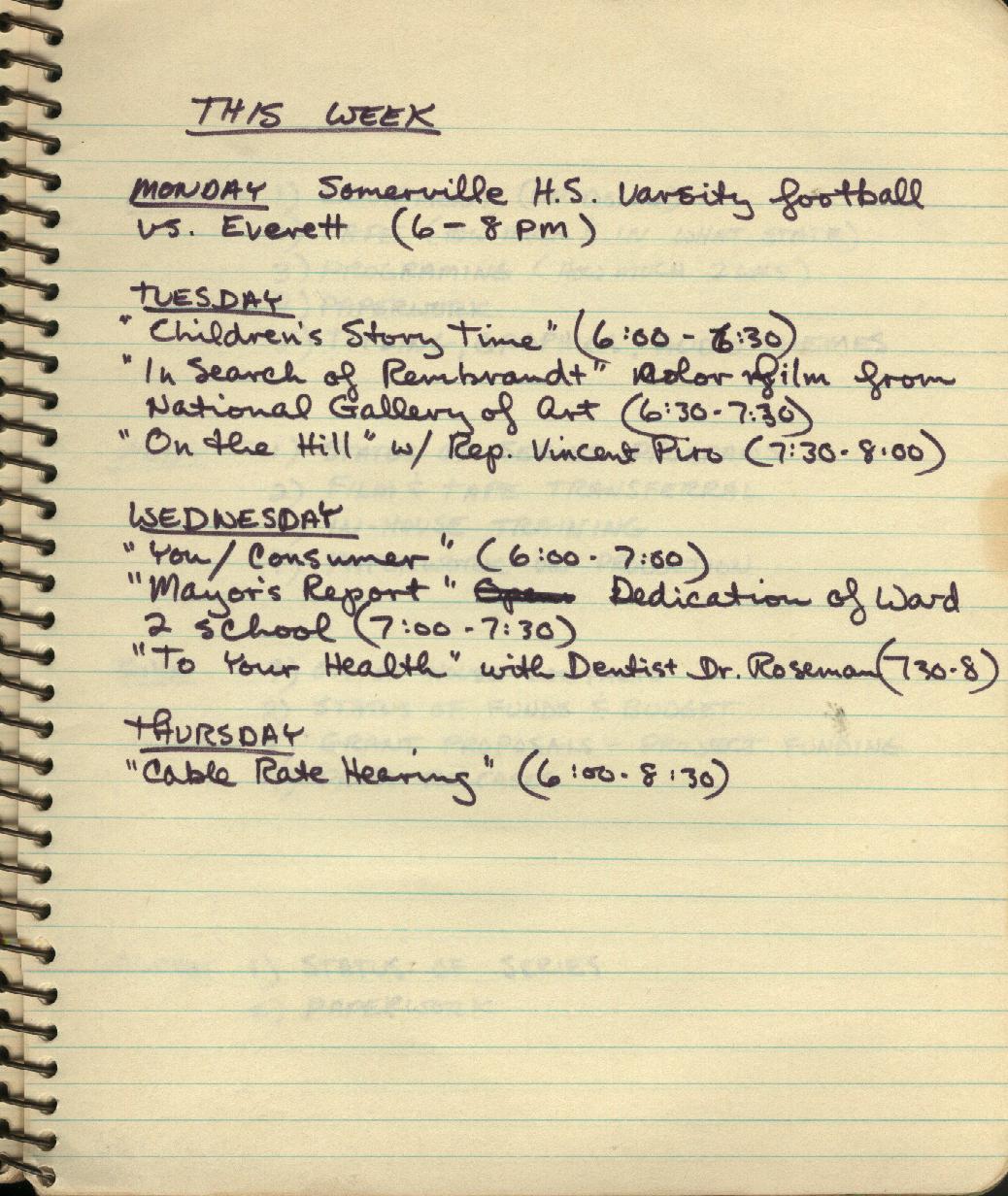
In search of Resources
Media
This appears to be a list of the local media folks at the time (1975-1976)
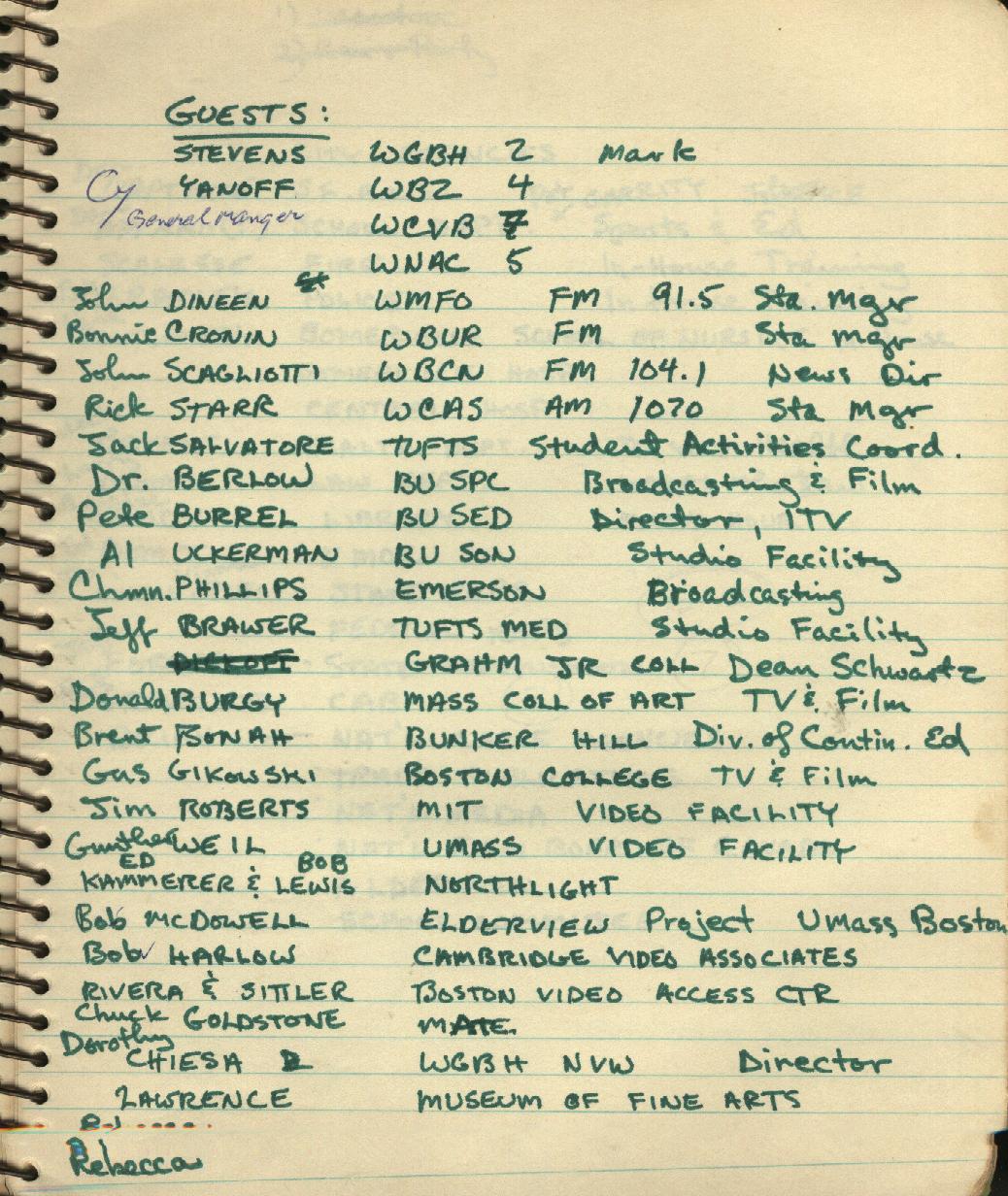
Somerville agencies & programming participants
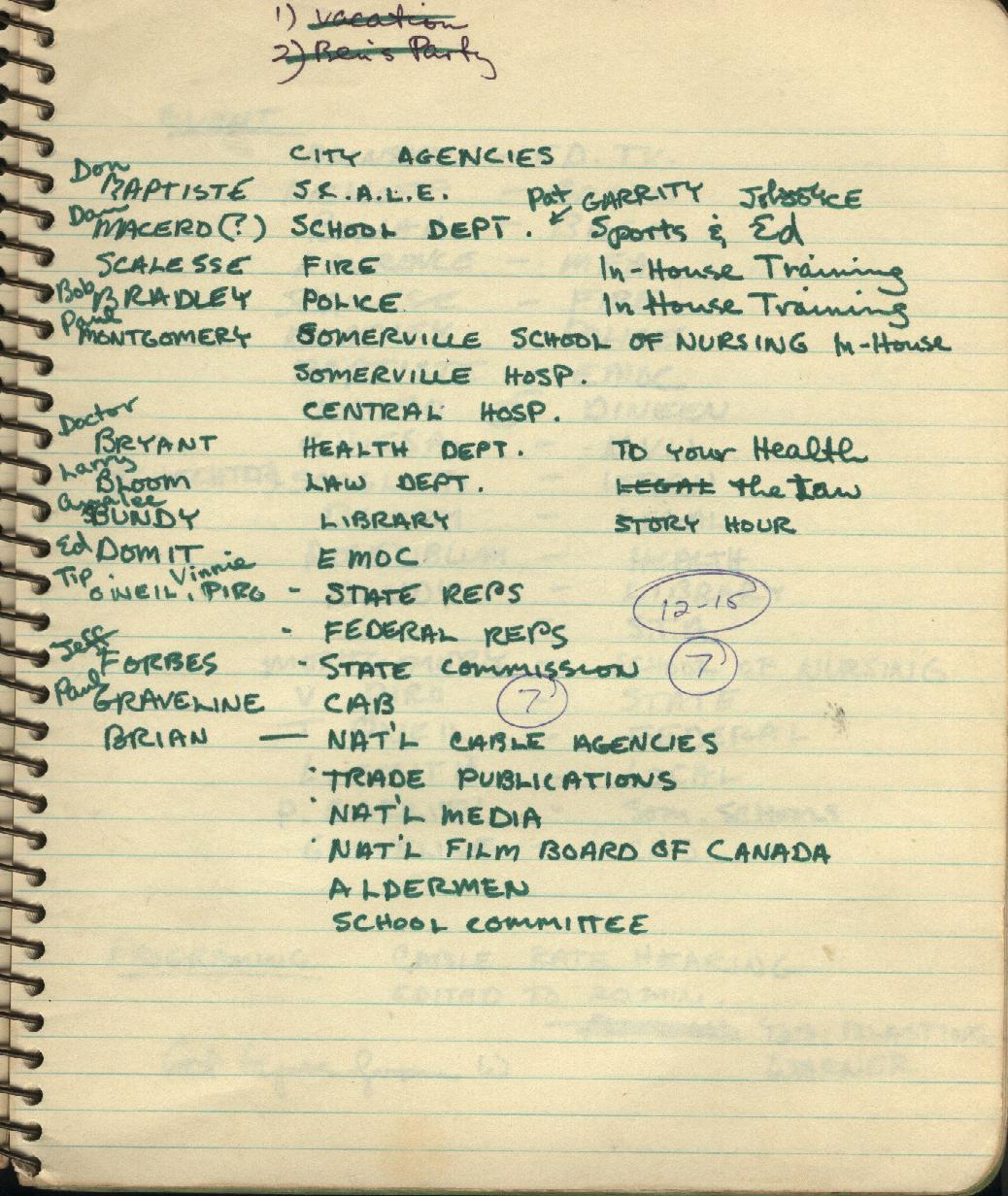
Looking for Money
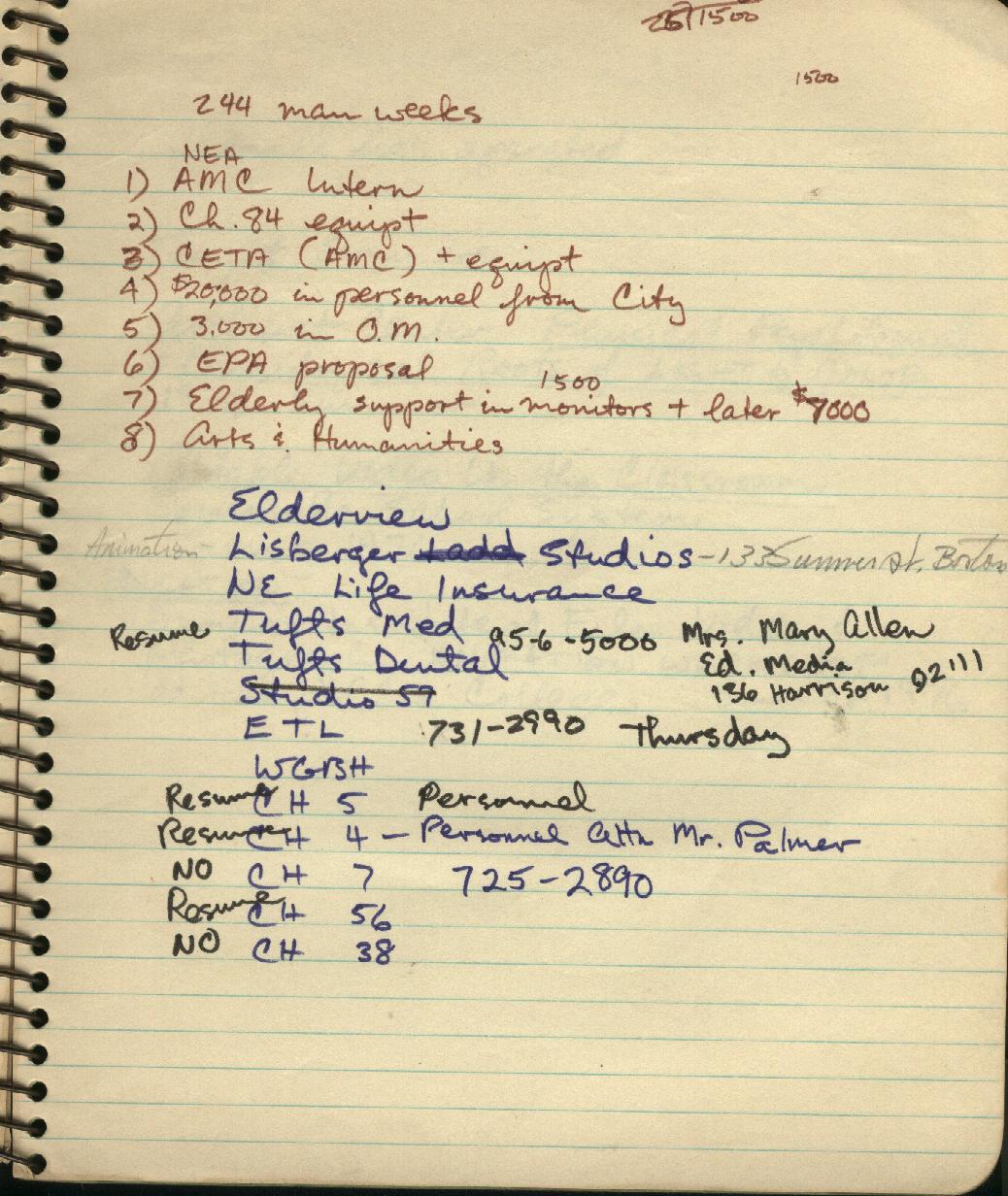
Collaboration: Bunker Hill Community College
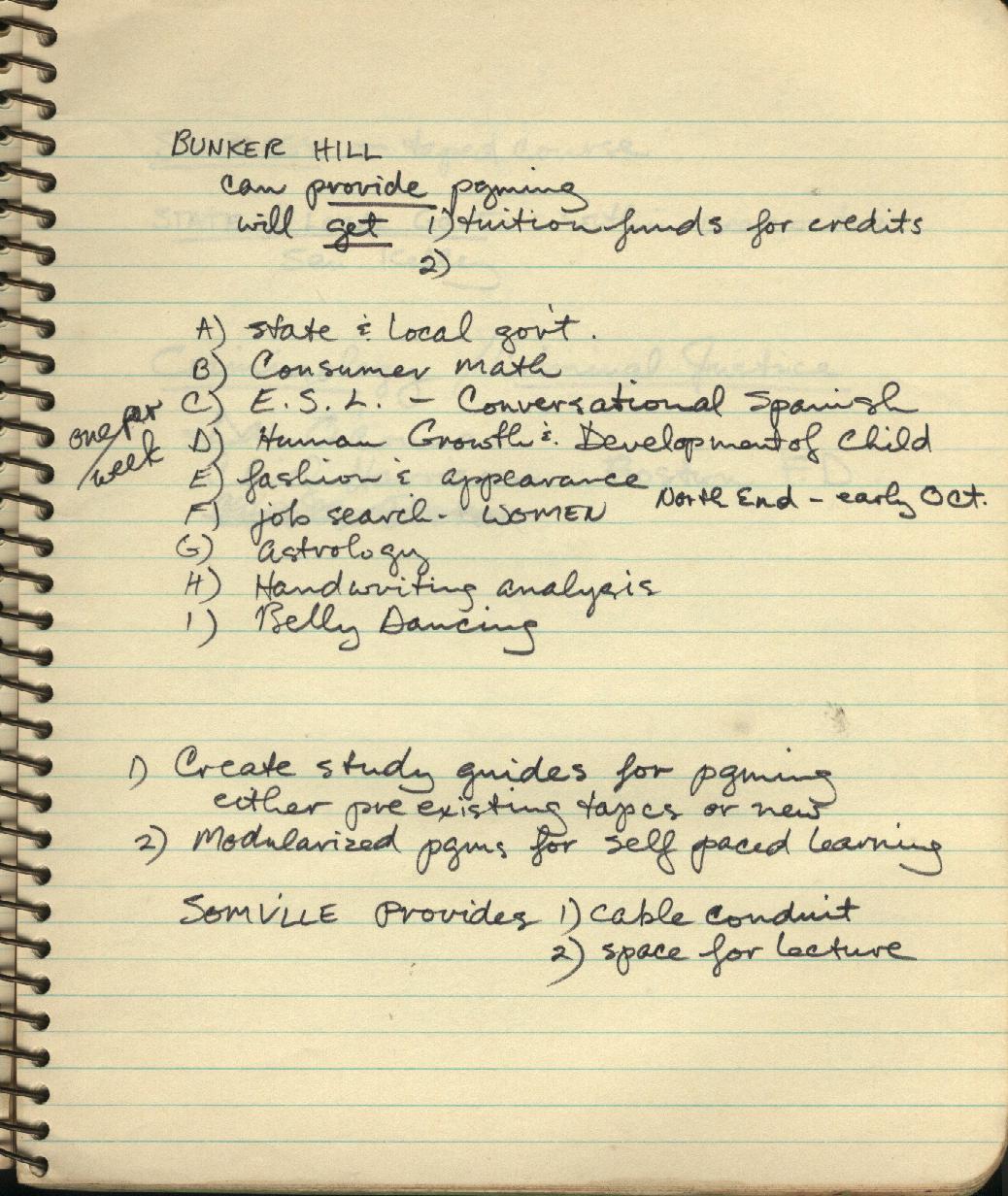
Looking for Volunteers
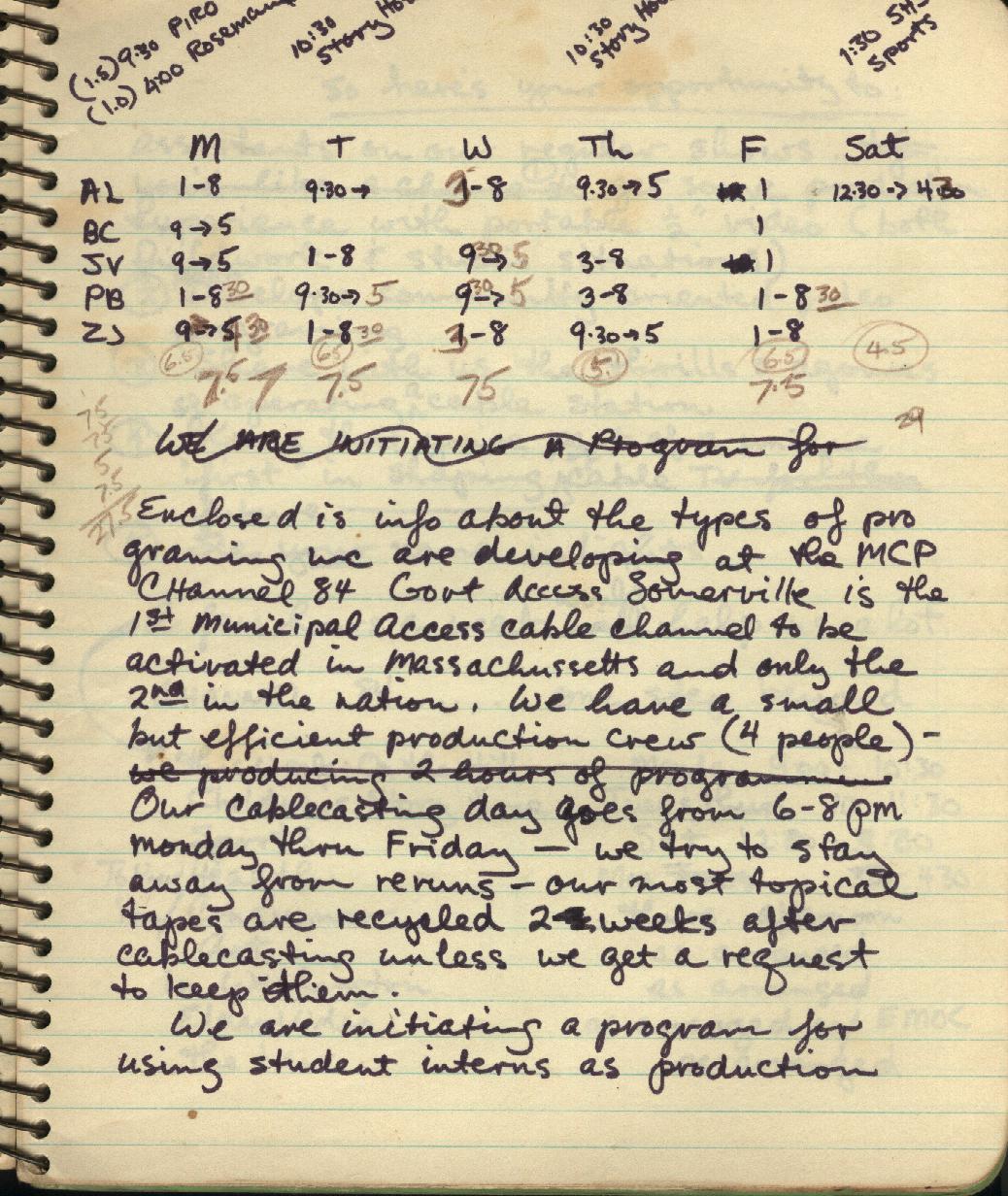
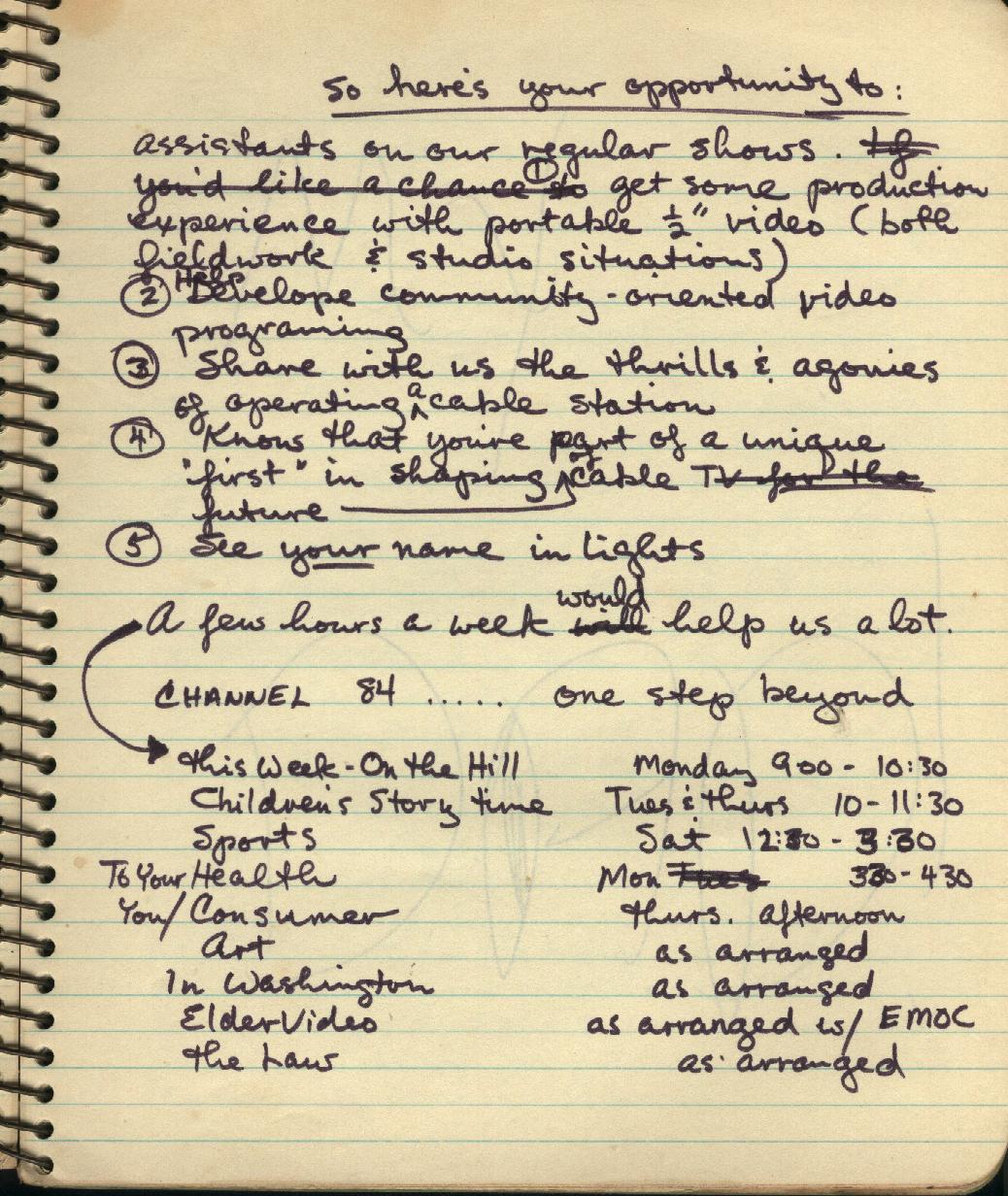
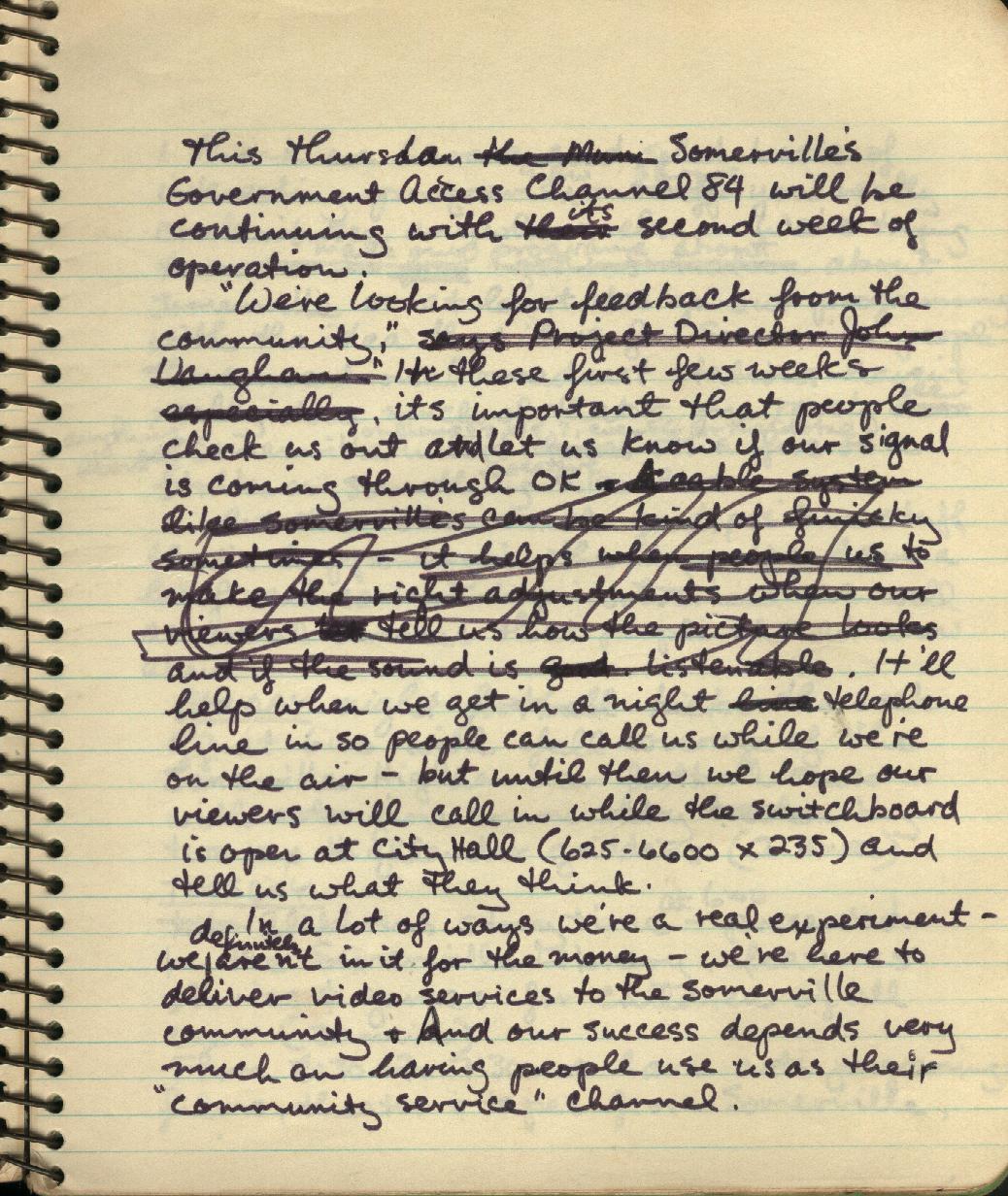
The End
In the mid-70's the northeast US was going through a profound financial crisis following the national recession of 1973-75. This was exacerbated by the flight of industry to less-developed (i.e. cheaper) environments abroad and in "the new South" - as well as a long-overdue de-segregation of the Boston area schools
Channel 84 came into existence because of the CETA (Comprehensive Education and Training) federal jobs program. Sadly, the local economy was still in poor shape to maintain this forward-thinking endeavor without further financial assistence from outside the local community. We came close: Missed by only 1 vote in the City Council - but were obliged to shut our doors in 1977.
We gave it our best shot.
To Whom it may Concern...
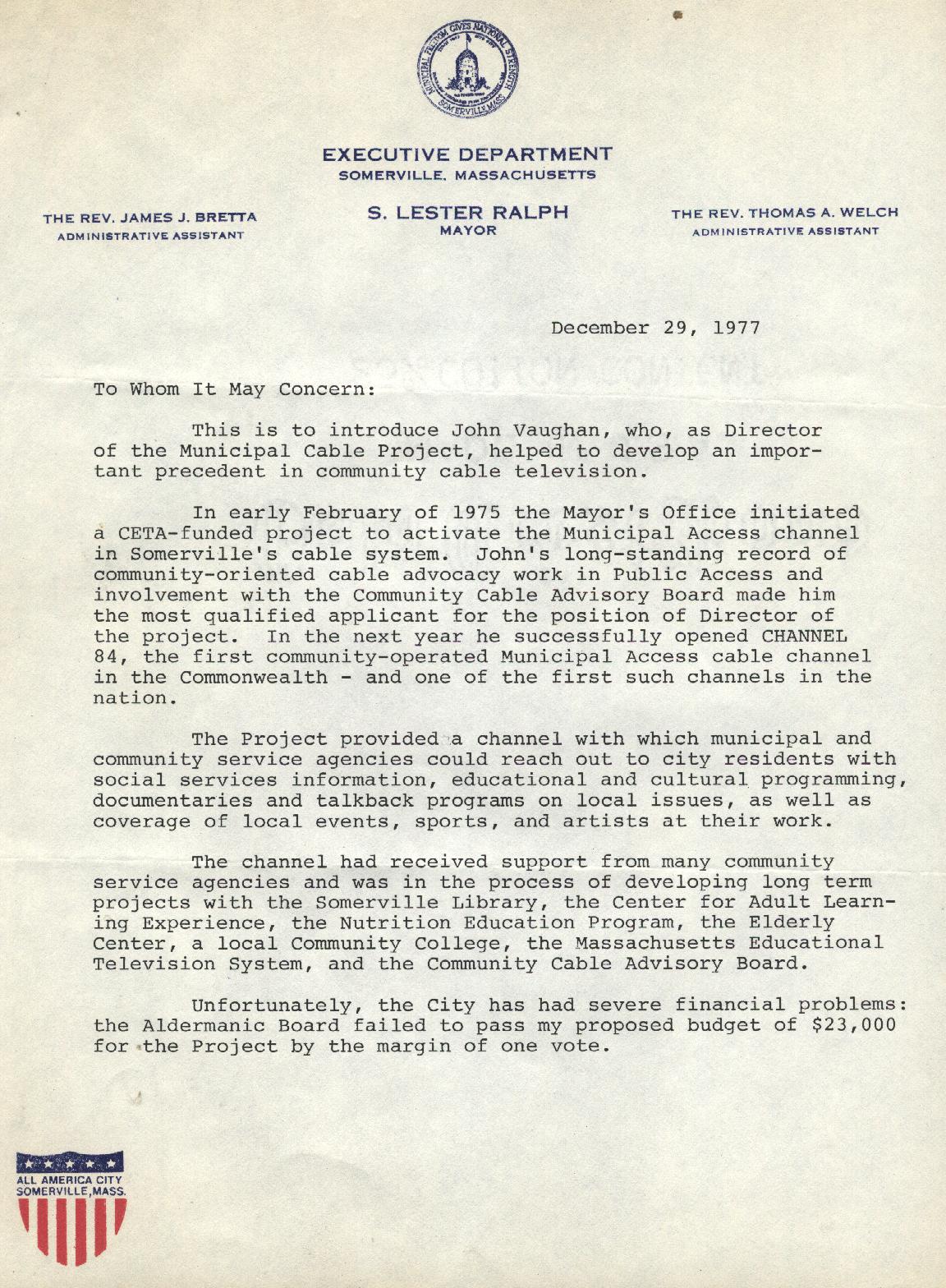
Author: